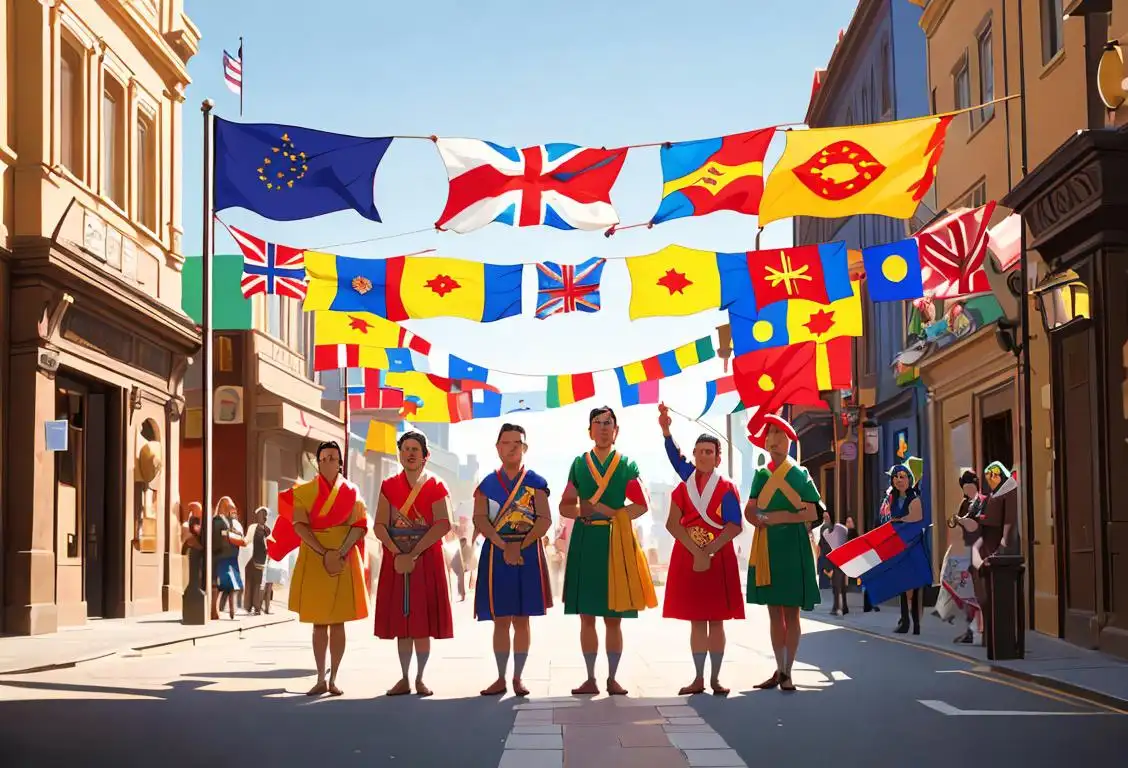National Citizenship Day

Welcome to the wonderful world of National Citizenship Day! Get ready to celebrate the awesome privilege of being a citizen and all the perks that come with it. Whether you were born into it or earned it through naturalization, citizenship is a precious thing. So let's dive into the rich history of this special day and the reasons why it's worth celebrating!
When is Citizenship Day?
It's national citizenship day on the 17th September.
The Birth of National Citizenship Day
Picture this: It's September 17, 1787, and the delegates to the Constitutional Convention in Philadelphia are putting the finishing touches on the United States Constitution. They're about to sign this monumental document that will shape the future of the nation. Fast forward a few centuries, and September 17 is now commemorated as National Citizenship Day.
Since its inception, this day has served as a reminder of the rights and responsibilities that citizens hold. It's a day to appreciate the privilege of living in a country where freedom, justice, and equal opportunities are cherished.
Celebrating our National Pride
On National Citizenship Day, it's time to embrace and celebrate the diverse tapestry of our nation. Display your American flag proudly, organize community events that promote unity, and take a moment to reflect on the principles that make our country great. And why not throw a citizenship-themed party? Serve up a delicious slice of apple pie (nothing says 'USA' more than that!), and raise a toast to the beautiful mosaic that is our nation.
Did You Know?
The first person to become a naturalized citizen of the United States was a man named Augustus Caleb Lutz. He gained his citizenship on March 29, 1784, and paved the way for countless others to follow in his footsteps. Talk about a trailblazer!
History behind the term 'Citizenship'
14th century
Feudal Roots
Citizenship finds its roots in the feudal system of the 14th century. During this era, people were bound to the land and their rights and privileges were determined by their relationship with the feudal lord. Citizenship, as we understand it today, did not exist then. Rather, individuals were subject to the authority of their lord, who provided them with protection and justice in exchange for their loyalty and labor.
18th century
Age of Enlightenment
The concept of citizenship began to evolve during the Age of Enlightenment, a cultural and intellectual movement in Europe that spanned from the late 17th century to the late 18th century. Influential philosophers like John Locke and Jean-Jacques Rousseau laid the foundation for modern notions of citizenship by advocating for natural rights, social contracts, and the idea that individuals possess inalienable rights and are equal members of society.
19th century
Birth of Modern Citizenship
The 19th century marked a significant turning point in the development of citizenship. Various political movements, including the American Revolution and the French Revolution, challenged the traditional hierarchical order and sought to establish new forms of governance based on democratic principles. This led to the emergence of nation-states, which granted citizenship rights to individuals based on factors such as birthright, residency, or naturalization.
20th century
Expansion of Citizenship Rights
The 20th century witnessed the expansion of citizenship rights in many parts of the world. In response to social movements and demands for equality, governments began to recognize and guarantee civil, political, and social rights to their citizens. The Universal Declaration of Human Rights, adopted by the United Nations in 1948, enshrined the principles of equality, freedom, and non-discrimination, further strengthening the concept of citizenship as a vehicle for ensuring the rights and well-being of individuals.
21st century
Globalization and Dual Citizenship
In the 21st century, globalization and transnationalism have posed new challenges to the traditional understanding of citizenship. With increased mobility and interconnectedness, individuals now have the opportunity to acquire dual citizenship, allowing them to enjoy the rights and benefits of multiple countries. This trend reflects the evolving nature of citizenship in a globalized world, where individuals have multiple affiliations and identities.
Did you know?
The first person to become a naturalized citizen of the United States was a man named Augustus Caleb Lutz. He gained his citizenship on March 29, 1784.Tagged
awareness funFirst identified
15th September 2015Most mentioned on
17th September 2015Total mentions
209Other days
Nurses Day
Former Prisoner Of War Recognition Day
Press Day
Handloom Day
Heroes Day
Memorial Day
Dance Day
Bestfriends Day
Liberation Day
Love Your Pet Day









